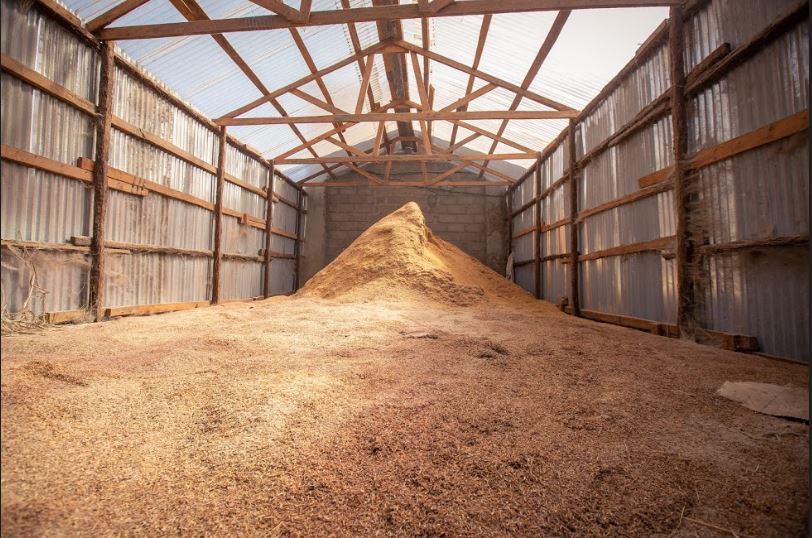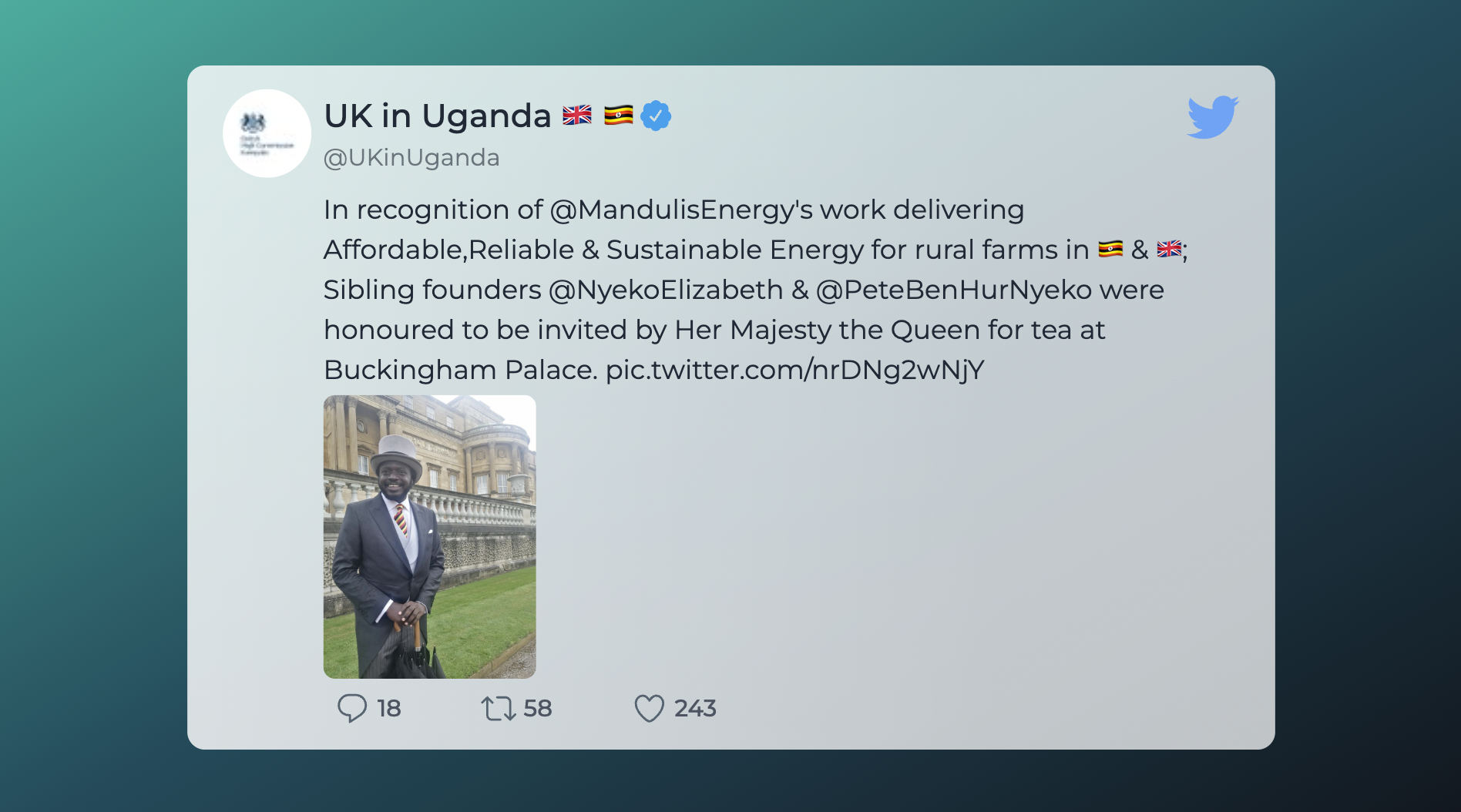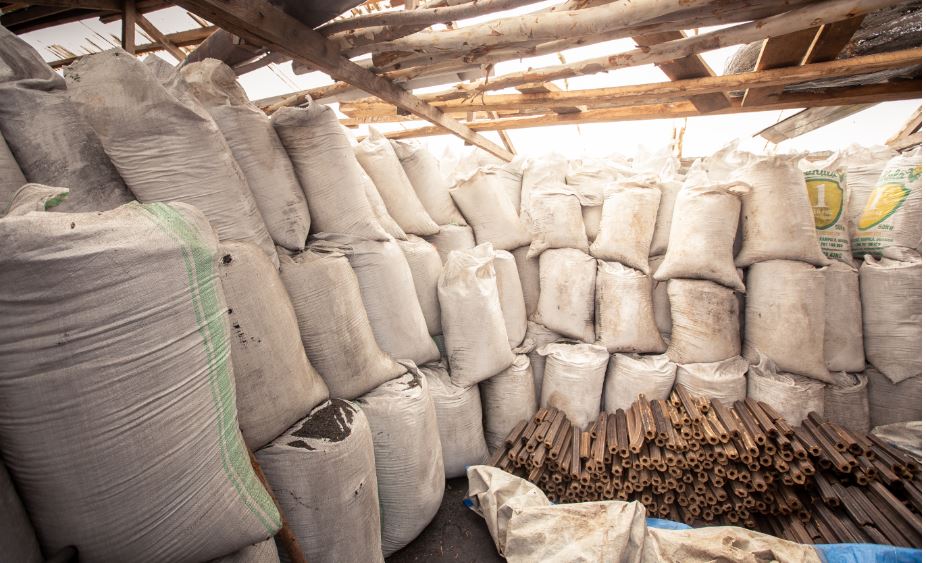Providing cooking fuel for 60,000 more rural families
Our clean cooking fuel project has just started a new 3-year initiative

Just the gist
Short on time? Here’s what you need to know this month:
- 🇬🇧 Tea at Buckingham Palace — From Her Majesty the Queen to the Ashden Awards, our partners at Mandulis Energy are being recognised for their hard work!
- 🧡 Building more production hubs — They also just finished up the first month of a new 3-year project, which will deliver clean cookstoves and fuel to up to 60,000 more rural families.
For more project updates, follow Wren on Twitter and Instagram.
Tea at Buckingham Palace
The Queen of Great Britain invited Peter and Elizabeth Nyeko to tea at Buckingham Palace. This recognition is a great honour for their founding work at Mandulis Energy!

Ashden, a climate solutions accelerator program, has recognized the team as well. Mandulis Energy has been shortlisted for the 2022 “Energising Agriculture” Ashden award. The winner of this award will receive a £25,000 grant to boost their climate projects. Ashden will announce the winners this summer.
Boosting innovation bridging the gap between the agriculture and energy access sectors, helping farmers and producers learn technical and business skills, and access finance and new markets.
The recognition is well deserved. They continue to provide clean cooking fuel to the Kiryandongo and Lamwo refugees.
Wren is proud of their efforts, and wish them the best of luck!
Building more production hubs
Mandulis Energy welcomes a new director to the team to lead a new 3-year initiative. Supported by USAID, this project will establish two new production centers. They estimate the project to offer cookstoves and cooking fuel to up to 60,000 rural families.

In addition, the team is getting ready to roll out a digital solution for acquiring agricultural waste as biomass feedstock.
In a recent Bloomberg interview, Peter Nyeko goes on to describe this process:
“So we basically get agricultural waste that no one needs, and that’s usually burned. So rice husk, maize cobs, groundnut shells, coffee husks… We convert that into methane* and hydrogen which then goes into an engine and runs it. And that generates electricity…. In a village of maybe a thousand homes, that can deliver between half a megawatt to two megawatts of electricity, which covers all the needs of such a village. And if such a village is, for example, you know, miles and miles away from the grid, it becomes significantly cheaper to develop that mini grid to industrial scale than to connect that village to the grid.”
Peter Nyeko, Project Lead
You can watch the full interview here.
Edit (June 9 21:20 CEST)— *Biomethane, also known as biogas, is a green clean renewable gas. The production of biomethane reduces the level of methane (and other pollutants) emitted into the environment by preventing decaying organic waste from being exposed to the air and providing a replacement for fossil fuels.
That's all for this update! As always, thank you for your support.
— the Wren team 🧡

